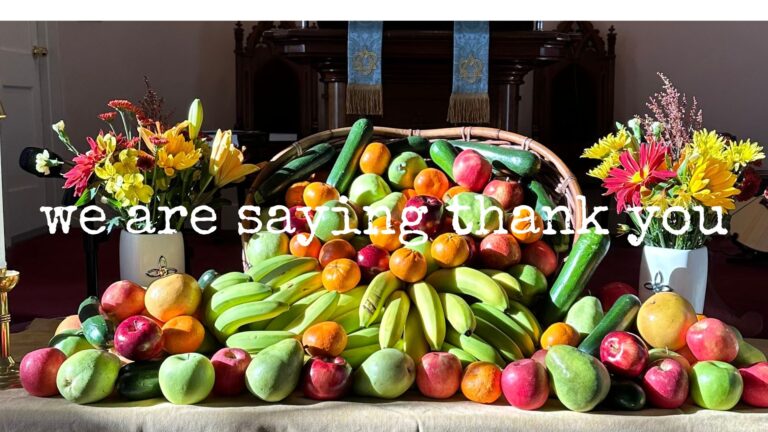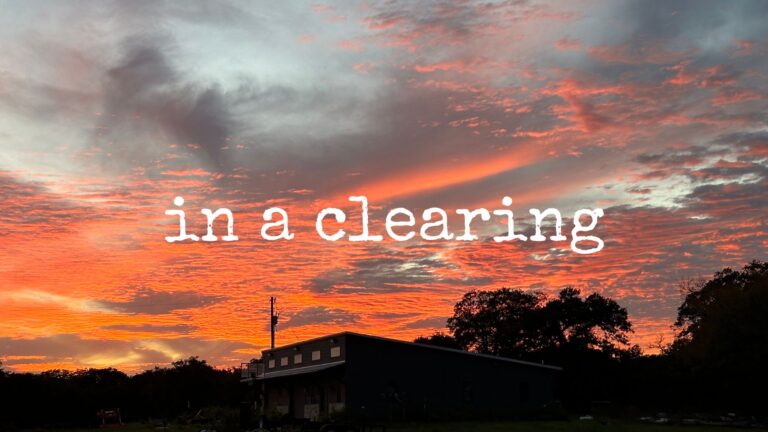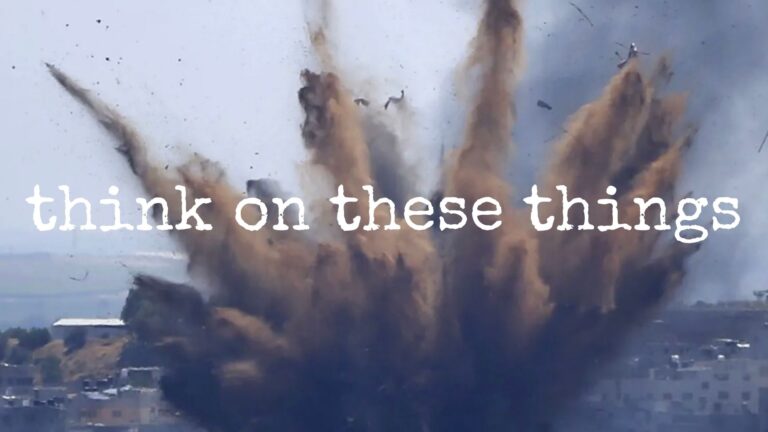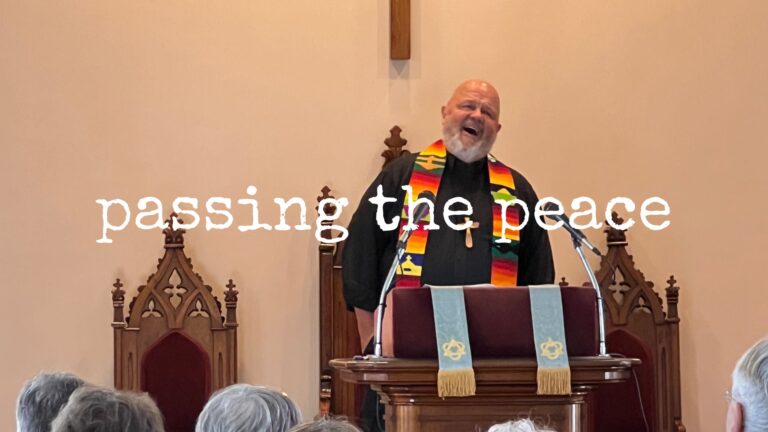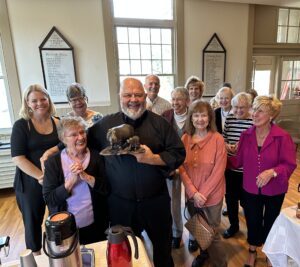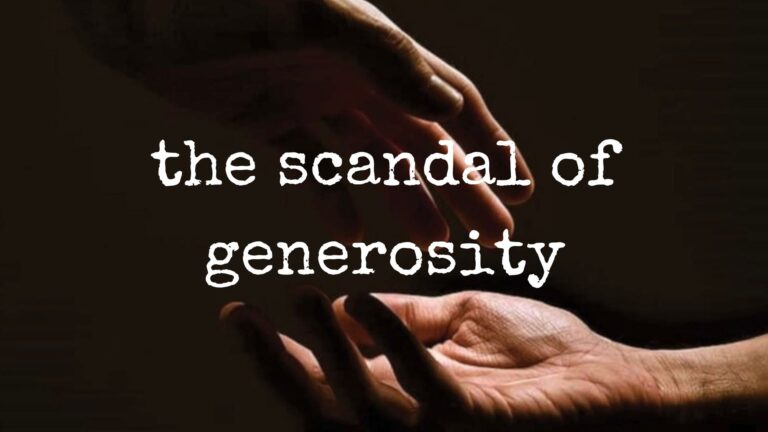I veered away from the lectionary passage this week to talk about gratitude. My text was the story of Jesus healing the ten who had leprosy, yet only one returned to say thanks. The point of the story runs deeper than saying we all should write thank you notes.
_________________________
We live in a world that is conscious, perhaps even hyper-conscious about borders. We fight wars and build walls to protect them. We worry about who crosses them. We have come up with all sorts of papers and procedures to make sure we know who is coming in and going out. Though the folks in Jesus’ time didn’t have to deal with some of the paperwork, they were conscious of borders as well—and one in particular: the border between Samaria and Galilee. Well, and the border between Samaria and Judea.
Samaria sat between the two Jewish regions, but the Samaritans were not Jewish. The religious differences caused misunderstandings and even prejudices between the two groups. The borders were not officially patrolled like ours are, so people went back and forth for a number of reasons. But if you were a Jewish person in Samaria, or a Samaritan person in Galilee, for whatever reason, you knew you didn’t belong.
So when Luke writes that Jesus crossed over the border from Galilee into Samaria, he was saying that a lot was already going on in the story before the people who had leprosy even showed up, which leads me to my next statement: we live in a world full of layers. Most everything—and everyone—has more going on than what we see on the surface.
Jesus was walking the border between Galilee and Samaria when he was approached by ten men who had leprosy—nine Jews and one Samaritan who had a skin condition that people thought was so contagious that they banished the victims from society regardless of which side of the border they were on, so these guys knew a thing or two about being outcast. They lived on the border. They didn’t belong with anyone other than those who were also outcast.
They saw Jesus walking in their world and cried out for mercy. Jesus didn’t make a scene, or big statement about healing; all he said was, “Go show yourselves to the priest.” His words would have made sense to the Jewish men because the next layer, according to Jewish law, was that the only way they could re-enter society was for a priest to declare them healed; then they could belong again. All ten of them left, and as they walked, Luke says, their leprosy disappeared. Nine of them continued on to find a priest—as Jesus had instructed.
One of them turned around and came back to thank Jesus. The Samaritan. The border of leprosy was not the only border he had trouble crossing. The next layer for him was the priest would not have declared him fit to join Jewish society no matter how clean his skin was. When they all had leprosy, the other nine had not minded hanging out with him. They were a community of misery. But now, when it came to belonging, he was still going to be without a lunch table in any Galilean high school, yet he was thankful to be healed, so he came back to tell Jesus since that would be a more meaningful exchange of words than he would be able to have with anyone at the synagogue.
Hear me clearly: none of the nine did anything wrong, nor did the priest that declared them healed. They followed the rules. They did as they were told. But the tenth man understood something the others missed, or perhaps he stumbled on it when he turned back to Jesus because no one expected him at the temple. Both disease and healing are layered.
In the same way his skin had flaked off in layers because of the leprosy, both his isolation and his healing were more than skin deep. Perhaps as he walked and saw the sores fall away he realized the other painful boundaries in his life that had been covered up by his leprosy. He had not had to think about being a Samaritan in a long time; now he did.
And he came back to say thank you, over and over.
Jesus said, “Your faith has healed you.” He, too, was talking about more than the leprosy.
As I thought about these verses this week, I was brainstorming about their meaning with a friend and came to a realization about why I was so moved by this idea of layers. In fall of 2000 I was diagnosed with sleep apnea. Well, first it was sleep deprivation because every time I sat down I dozed off. I had gone most of my life getting by on four or five hours sleep a night and then, in my early forties, I couldn’t stay awake.
I went to the sleep center and they told me I was sleeping in ninety second increments and gave me a CPAP machine. After my first night of using it, I told Ginger, “If this is what feeling rested feels like, I have never felt this way.” It was such a gift.
In the fall of 2001, as I told you, I was overcome by a profound depression—a condition, a struggle, a reality (it’s hard to know what to call it sometimes) that has not been so easy to shake. They don’t make a CPAP for it, but I have learned a lot about both myself and my depression that have made my life meaningful. When I look back, I can see I was depressed long before I knew it, but a big part of the problem was my lack of sleep covered it up. I had to be get well before I could feel the real sickness of my life.
I would wish depression on anyone, myself included, yet in the layers of it all, I find reasons to be grateful. Much like the one healed in the story, my faith has not solved the layers of my problems or erased all the borders, but it has given me reasons to be grateful, which is probably why the poem “Thanks” by W. S. Merwin is one of my favorites. He speaks to the gratitude I am describing.
Thanks
Listen
with the night falling we are saying thank you
we are stopping on the bridges to bow from the railings
we are running out of the glass rooms
with our mouths full of food to look at the sky
and say thank you
we are standing by the water thanking it
standing by the windows looking out
in our directions
back from a series of hospitals back from a mugging
after funerals we are saying thank you
after the news of the dead
whether or not we knew them we are saying thank you
over telephones we are saying thank you
in doorways and in the backs of cars and in elevators
remembering wars and the police at the door
and the beatings on stairs we are saying thank you
in the banks we are saying thank you
in the faces of the officials and the rich
and of all who will never change
we go on saying thank you thank you
with the animals dying around us
our lost feelings we are saying thank you
with the forests falling faster than the minutes
of our lives we are saying thank you
with the words going out like cells of a brain
with the cities growing over us
we are saying thank you faster and faster
with nobody listening we are saying thank you
we are saying thank you and waving
dark though it is
Living in gratitude is hard work. That’s an odd thing to say, yet it is an important truth. To keep saying thank you is an act of faith. Even though all ten were healed, it didn’t mean life automatically got easier, it just meant one layer of pain had been lifted, and that was worth being thankful for. But gratitude is a choice, and often a courageous one, if we are up to it. Whatever is going on, it is our faith that heals us: our trust that love is stronger than any border, any difference, any condition, alive at every layer of life. May we be those who choose to keep saying thank you in the middle of it all. Amen.
